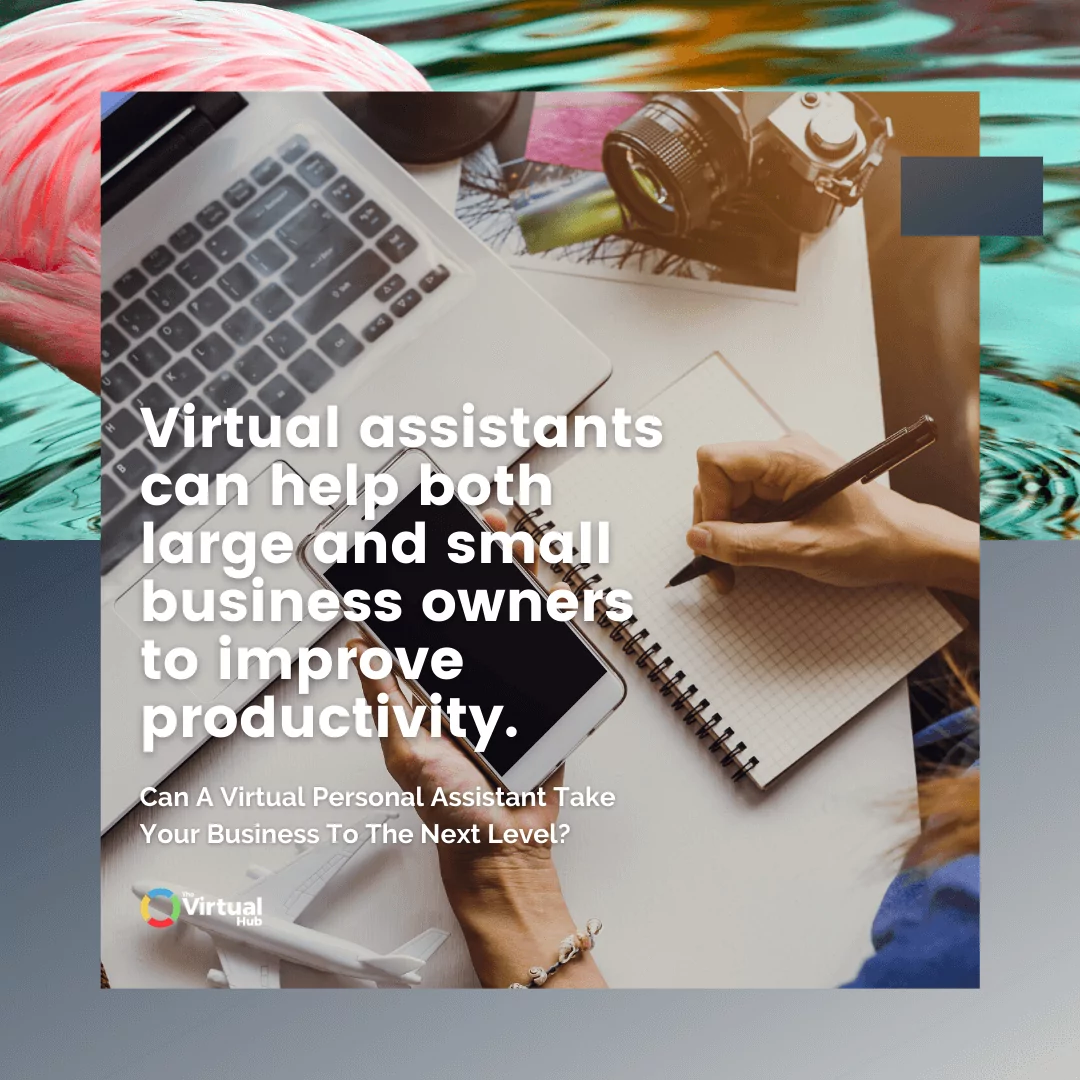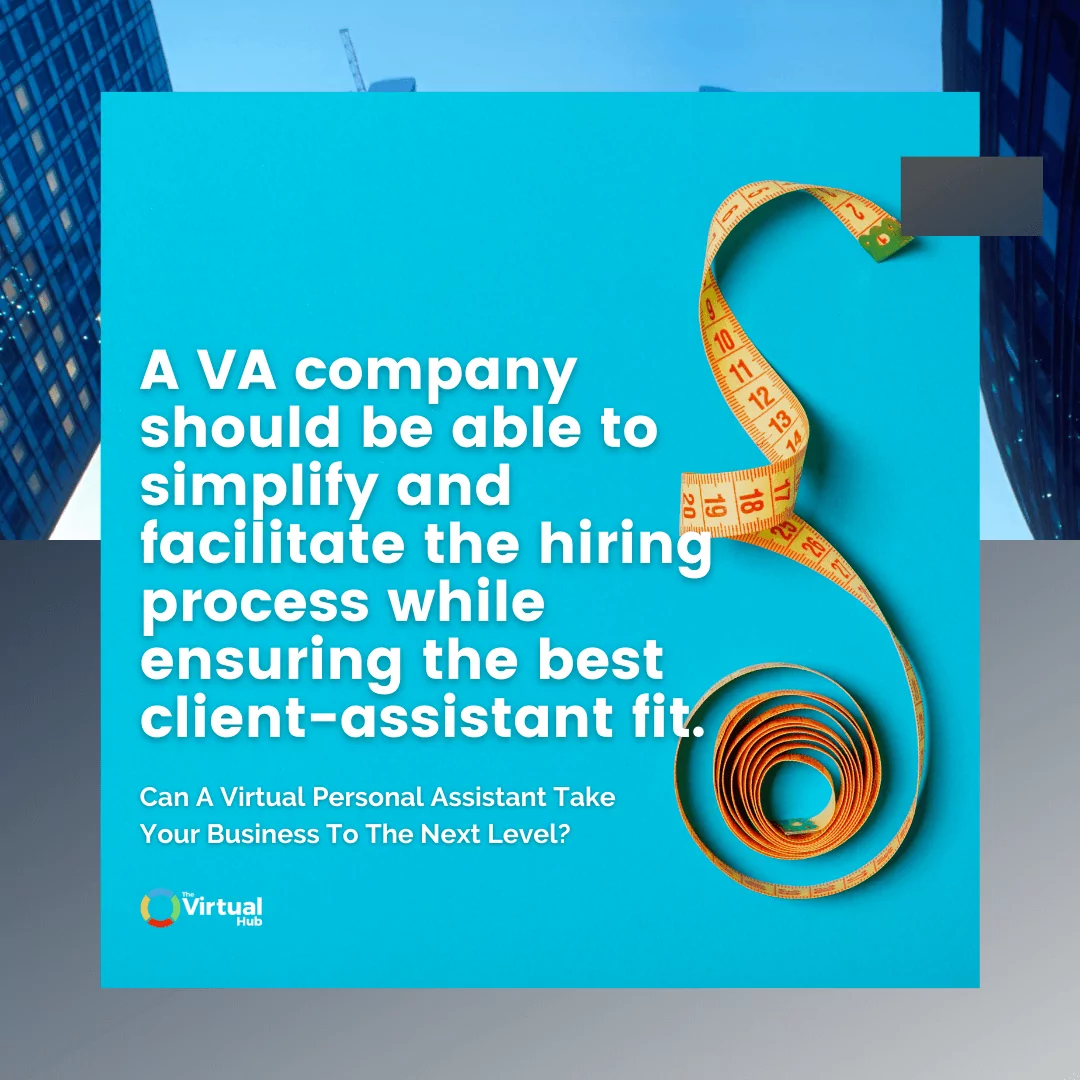As a business owner, you know that there are a lot of things to keep track of. You have to make sure that your products and services are top-notch, that your customers are happy, and that your finances are in order.
But what about the little things? The day-to-day business tasks that don’t necessarily fall into any one category but still need to be done? That’s where a virtual assistant can help!
Read on to learn all about virtual assistants and how they can help you grow your business!
RELATED: Virtual Assistant Services: What Businesses Actually Need
Take Your Business to the Next Level: Virtual Assistant Services to Scale Up Your Business
You can click on these links below to jump on a specific topic:
- What Is a Virtual Personal Assistant (Virtual PA)?
- What Is the Difference between an Executive Assistant and a Virtual Assistant?
- Why Hire a Virtual Assistant?
- Who Needs a Virtual Assistant?
- How Many Hours Does a Virtual Assistant Work?
- Where Can You Find Virtual Assistants?
- How Do You Hire a Virtual Assistant?
What Is a Virtual Personal Assistant (Virtual PA)?
Virtual personal assistants or virtual assistants (VAs) are a special type of administrative assistant. The word “virtual” is thrown into their titles because VAs work remotely. Most of their tasks can be accomplished off-site and turned over online.
There isn’t one kind of VA. Every VA has a different set of skills and can offer a different combination of services.
There are two main VA categories:
- Generalist: VAs who can perform a wide range of administrative tasks
- Specialist: VAs who usually have more experience in performing a handful of business functions
Here are a variety of tasks that are well within the skillset of a generalist VA:
- calendar management
- data entry or database management
- fielding phone calls
- bookkeeping
- making travel arrangements
- schedule appointments
- email management
- file management
- general research
- other personal tasks

Here are some common business functions handled by a specialist VA:
- online or digital marketing
- content creation or management
- customer support services
- lead generation
- web research or online research
- web design
- project management
- systems management
- social media management
There are also some VAs that specialize in specific industries, like health or real estate. Some of them may also possess other skills that you may need from time to time (ex: graphic design).

What Is the Difference between an Executive Assistant and a Virtual Assistant?
Both roles can be extremely helpful in keeping your life and business organized. Here’s a quick rundown of the key differences:
An executive assistant is a traditional administrative role, and they're typically based in an office. They generally provide in-person support to executives within an organization.
Meanwhile, a virtual assistant is a more modern role that provides administrative support to clients remotely, meaning they can work from anywhere in the world! This allows virtual assistants to have more flexible hours, provide support to clients during non-traditional business hours, and work in a different time zone.
Additionally, an executive assistant is usually responsible for supporting one or more executives within a company. Virtual assistants, on the other hand, can support anyone from busy entrepreneurs to large businesses to individuals with complex schedules.
Why Hire a Virtual Assistant?

Utilizing virtual assistant services can take your business to the next level. Here are some of the advantages:
- Maximize On-site Employees: If you already have a whole team of employees working for you on-site, you can maximize them further by outsourcing certain time-consuming tasks to an experienced virtual assistant. That way, your team has extra time to spend on more critical tasks. You can also use that time to upskill your team.
- Reduced Costs : Hiring an onsite, full-time employee can increase your overhead. Meanwhile, hiring a virtual assistant is a cost-effective solution that lets you save on office space, equipment, and other benefits. You only pay for the services you need without the added costs of a full-time employee!
- Focused Leadership: By leveraging virtual assistant services, you can focus more on your company’s strategic vision and goals. After all, you won’t have to worry about the day-to-day tasks that'll keep your business running smoothly. You can also use that time to work ON your business instead of IN your business.
- Reduced Training Needs: Having an in-house team usually requires investing in training. When it comes to working with a VA, you can already choose someone who has the skills you need.
- Optimized Time: Time is money. One of the biggest advantages of hiring a VA is that they can free up your valuable (and irreplaceable) time. Let someone else take care of all that unavoidable administrative work so that you can focus on more important matters.
- More Work-Life Balance: If you’re finding it hard to juggle work and personal life responsibilities, a virtual assistant can help take some things off your plate. With more free time, you can finally take that long-awaited vacation or spend more time with loved ones!
- Scalability: When you have a full-time onsite employee, they’re usually working the same hours every day regardless of how busy or slow your business is. With a VA, you only pay for the services you need and use.
If business is slow, you don’t have to keep them on retainer. And when business picks up and you need more help, it’s easy to scale up your VA services.
Who Needs a Virtual Assistant?
Virtual assistance can help both large and small business owners to improve productivity. After all, there are many functions in a business that don’t need to be completed on-site or face-to-face.
There are also seasonal business functions that don’t require full-time employees. These specific tasks and functions can be outsourced to a dedicated assistant.
In addition, some new business owners have a lot on their plate, but can’t hire full-time employees yet. A virtual assistant is a more affordable way to get extra help while you grow your business.
Before hiring a virtual assistant though, business owners need to be comfortable with using a computer or smart device. Proper communication is essential when it comes to managing a virtual assistant, and most of this communication happens online. Managers should be comfortable with using email, chat apps, or video conferencing apps. It’s also helpful if they have a stable internet connection.

How Many Hours Does a Virtual Assistant Work?
The number of hours a virtual assistant works for each business varies. It depends on the arrangement both parties agree on.
Some virtual assistants agree on an output-based agreement. This means that their total hours worked don't really matter, for as long as they get the job done.

On the other hand, some virtual assistants are hired on a time-based agreement. They can start off rendering 20 hours each week at an agreed-upon time. Full-time VAs can work the usual eight hours per day or 40 hours each week.
VAs who work part-time usually get paid an hourly wage, while others are full-time employees of a virtual assistant company.
RELATED: Onshore Vs Offshore Virtual Assistant--What's The Right Choice For You?
Where Can You Find Virtual Assistants?
While there are independent contractors or freelancer virtual assistants who work independently, it’s advisable to hire a VA through a virtual assistant company.
Here are some advantages of hiring through an established company:
- Assistants Are Vetted. When you work closely with a VA company, you can be assured that the assistant they provide has been properly vetted. They'll have gone through a screening process and training before being matched with clients.
You can request for specific skillsets or personalities. You can also be assured that the assistant is knowledgeable about data privacy and security protocols.
- Better Support. When working with an established company, you’ll have support should any problems arise. You can contact customer service if there are any issues with your account or the services rendered.
- It’s Easier to Find the Right Fit. If you’re not happy with the assistant you were matched with, a VA company can easily replace them. You don’t have to go through the hassle of looking for a new assistant on your own.
- There’s More Accountability. If you hire an independent contractor, there’s always the risk of the assistant going MIA or leaving abruptly. A VA company usually hires a full-time assistant, so this can help reduce the risk of turnover.
- You Get an Extra Pair of Eyes. A good VA company will constantly monitor the work and progress of all of its assistants. They’ll help ensure that your assistant provides high-quality work.
- They Simplify the Outsourcing Experience. From the payment, onboarding, and evaluations, a company can help simplify the outsourcing process. A good VA company can serve as a one-stop shop for most of your outsourcing needs.

How Do You Hire a Virtual Assistant?

Before you begin the hiring process, it’s important to have a good understanding of your needs. Before you contact a virtual assistant company, ask yourself: What tasks/roles do I want to outsource to a virtual assistant?
It doesn’t have to be too detailed at the start. Coming prepared with a shortlist of tasks can help the VA company better assess your needs.
Once you have a clear idea of what you want, contact a reputable virtual assistant company to begin the process. Here’s what the onboarding process usually involves:
- Book a Call. The first step is to book a call with the company. This is usually done through their website.
You’ll be asked to provide some basic information like your name and email address. You may also be asked to answer a few questions related to your outsourcing needs.
- Schedule a Consultation. After booking a call, you’ll be contacted by the virtual assistant company to schedule a consultation. This is where you’ll discuss your specific needs in detail.
During the consultation, the company will try to get to know your business better. They’ll ask about your target market, business goals, and brand identity. All of these factors will help them find the best possible assistant for you.
- Decide on the Kind of VA Needed. Afterward, you’ll need to decide if you want a part-time or full-time VA. You'll also need to decide if your needs are best met by a generalist or a specialist. The VA company can also make recommendations.
- Company Initiates Pairing. A good company will thoughtfully pair you with a VA. This means that they won’t only consider the assistant’s skill set, but they’ll also factor in the client and assistant’s personality.
- Interviews with Prospective VA. Then, the VA company will arrange for an online meeting. This is an opportunity for you to get to know the prospective VA before making your final decision.
- Selection and Onboarding. Once the client chooses the VA, the company facilitates the onboarding process and the VA can start working.

A good VA company will continue to provide support throughout your engagement. They'll also continue to train and upskill all of their virtual assistants.
Remember though, not all VA companies are created equal. Some companies provide little or no support once they’ve made the assignment. So make sure to go with an experienced company that won’t leave you hanging!

Final Thoughts
Now that you know how to hire a virtual assistant, it’s time to take action. Start by identifying your needs, and then contact a reputable VA company.
Here at The Virtual Hub, we pride ourselves on providing top-tier virtual assistants. We make sure that our pool of assistants is constantly vetted and trained. We'll not only match you with a highly skilled assistant, but we'll also provide continuing support. With the help of our virtual assistants and our team leaders, you can let go of certain tasks and truly focus on growing your business!
If you’re interested in finding out more about our services, feel free to schedule a call with us. We’d be happy to discuss your needs and see how we can help!
